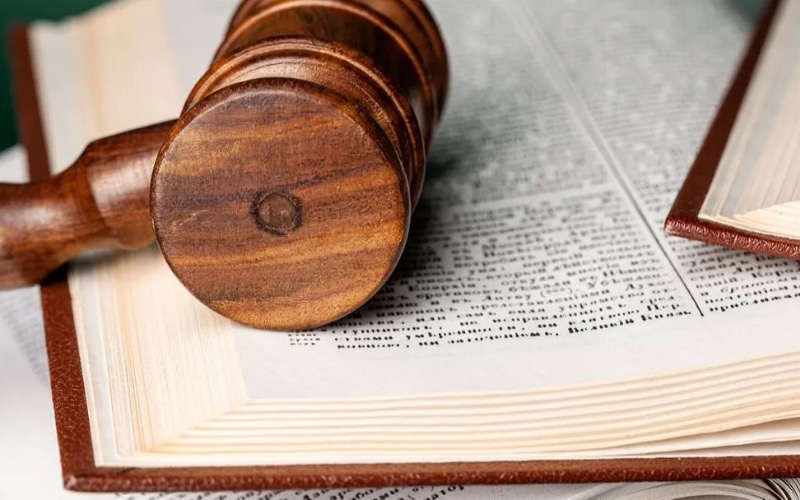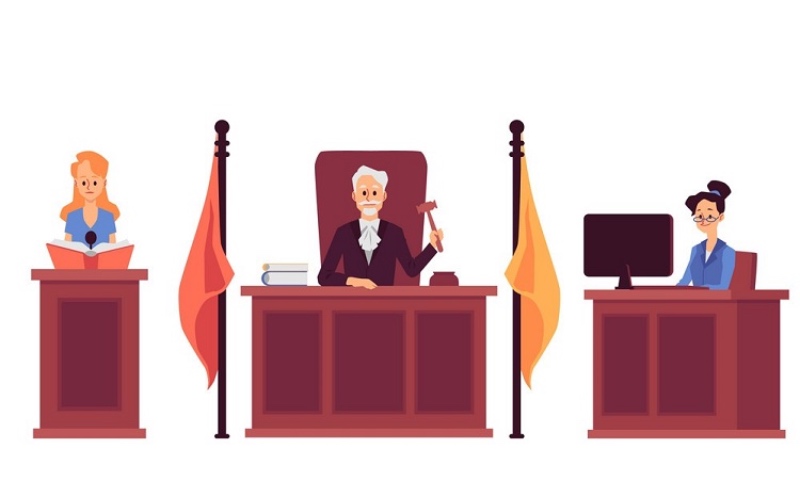First instance is the initial stage of legal proceedings in Vietnam. Although the relevant regulations regarding the procedures of first instance are outlined in legal regulations related to litigation, their practical application remains unclear and inconsistent. In the article “Definition of first instance and the issues to note in first instance procedures”, we will provide a comprehensive overview of the first instance procedures and highlight important aspects to consider when involving first instance procedures.
Definition and Characteristics of first instance in litigation
Definition
The first instance is the initial stage in the process of litigation. During this stage, the competent Court will examine and resolve the case based on the written request of the petitioner or the petition of plaintiffs (in the case of civil or administrative matters) and the prosecution decision by the Procuracy (in the case of criminal cases). The outcome of the first instance proceedings is the Court’s issuance of a decision or judgment to resolve the case. Depending on the specific type of case, the resolution of the case through the first instance procedure follows the procedures stipulated in the applicable Civil Procedure Code, Criminal Procedure Code, or Law on Administrative Procedure.
Characteristics
In the first instance procedures, for the civil and administrative cases, the Court will only consider the requests of the involved parties in the written request or the petition. In criminal cases, the Court will only examine the acts related to the offence that the Procuracy has prosecuted in the Prosecution Decision.

- Issues to note in first instance procedures
Jurisdiction of the Court of First Instance
In civil cases, the jurisdiction of the Court is divided into two categories, by case and by territory. In civil cases, the Court with first instance jurisdiction will be the People’s Court at the district level or the People’s Court at the provincial level, depending on the specific type of case. The jurisdiction to resolve civil cases by territorial jurisdiction is usually the Court located where the defendant resides or works, or where the defendant has its headquarters if the defendant is an organisation. It is important to note that in cases involving disputes over real estate, only the Court in the jurisdiction where the real estate is located has the authority to resolve the dispute.
In administrative cases, the provincial level Court has jurisdiction to adjudicate at the first instance for the majority of complaints that do not fall within the jurisdiction of the district level Court. The Law on Administrative Procedure relies on the administrative territorial boundaries of the defendant and the place where the decision is issued or the act is carried out to determine the jurisdiction for first instanceproceedings.
In criminal cases, the jurisdiction of the Court of first instance is also determined by level and territory. District level Courts and local military Courts have jurisdiction towards first instance proceedings for misdemeanours, felonies, and horrific felonies, except for crimes specified in clause 1 Article 268 of the Code of Criminal Procedure 2015. In principle, the Court with jurisdiction to handle a criminal case is the Court in the place where the crime was committed. If a crime is committed in multiple locations or the location of the crime is unknown, the jurisdiction will fall under the Court located where the investigation ends. If a defendant commits a crime abroad and is to be tried in Vietnam, the People’s Court at the provincial level where the defendant’s last residence in Vietnam has jurisdiction.
Statute of limitations for resolving cases at the Court of first instance
In civil cases, the statute of limitations for filing a lawsuit and requesting the resolution of civil matters for each type of case will be specified in the applicable Civil Law and its guidelines, if any. For example, in disputes related to contracts, the statute of limitations for filing a lawsuit is 03 years from the date the person with the right to request knew or should have known that their rights and legitimate interests were infringed. In disputes related to marine insurance contracts, the statute of limitations for filing a lawsuit is 02 years from the date the dispute arises.
In administrative cases, the statute of limitations for filing a lawsuit regarding administrative decisions, administrative acts, or decisions on dismissal is 01 year from the date the person filing the lawsuit receives or becomes aware of the administrative decisions or acts. The statute of limitations for filing a lawsuit regarding a decision on settlement of a complaint about a decision on handling of a competition case and decisions to settle complaints in the state audit activities is 30 days from the date the person filing the lawsuit receives these decisions.
In criminal cases, the statute of limitations for prosecuting criminal liability is 05 years for misdemeanours, 10 years for felonies, 15 years for horrific felonies, and 20 years for extremely severe felonies.
The burden of proof
The involved party requesting the Court to protect their legitimate rights and interests in civil cases must collect, provide, and submit to the Court documents and evidence to substantiate their claim is well-founded and lawful unless the law provides otherwise.
In criminal cases, the responsibility of proving the crime belongs to the competent authority conducting the prosecution. The accused has the right to but is not obliged to prove their innocence.
Submission of Documents and Evidence
When submitting documents and evidence, the involved parties in civil, administrative cases, the accused, defenders, and other participants in criminal cases must ensure the content and form of the documents and evidence as follows:
- The documents and evidence submitted to the Court of first instance must be relevant to the claims, complaints, or have probative value in accordance with the regulations on evidence and proof in criminal proceedings.
- The foreign language documents and evidence must be accompanied by translations into Vietnamese, legalised (for the documents issued by foreign competent authorities), and legally notarised and certified.
- The supplemention, submission of documents and evidence must comply with the time limit set by the assigned Judge in the case (if any).
Conducting trial in absence of involved parties at the Court of first instance Court
In civil cases, at the first valid summons to the first instance trial, if a involved party is absent, the Trial Panel must postpone the trial session, except in cases where the absent person has submitted a request for a trial in absentia, then the trial will proceed.
At the second valid summons to the first instance trial, if the involved party or its representative, the person protecting the legitimate rights and interests of the involved party is absent due to force majeure or objective obstacles, the Court may postpone the trial session. If it is not due to force majeure events or objective obstacles, it will be handled as follows:
- If the plaintiff is absent without a representative in the trial session, the Court will issue a decision to suspend the case regarding the filing request, except when the absent person submits a request for a trial in absentia. The plaintiff has the right to initiate the case again in accordance with the law.
- If the defendant has no counterclaim, and persons with related rights and obligations do not have independent request lack a representative in the trial session, the Court will proceed with a trial in absentia.
- If the defendant files a counterclaim and is absent without a representative in the trial session, the Court will decide to suspend the resolution of the counterclaim, except when the defendant submits a request for a trial in absentia. The defendant has the right to initiate the counterclaim again in accordance with the law.
- If persons with related rights and obligations have independent request are absent without a representative in the trial session, they are considered to have waived their independent request, and the Court will decide to suspend the resolution of the independent request, except when they submit a request for a trial in absentia. They will have the right to initiate the independent request again in accordance with the law.
- If the persons protecting legitimate rights and interests of the involved parties is absent, the Court will still proceed with the trial in their absence.
Validity of the Judgment and Decision of the Court of first instance
Judgments and decisions of the Court of first instance are not immediately enforceable, instead, they may be subject to appeal through appellate procedures or reviewed according to cassation or reopening procedures.

Above is the general content related to the Definition of first instance and the issues to note in first instance procedures that Phuoc and Partners share with readers. If you have any difficulties related to the legal field, please contact us. Phuoc & Partners is a law professional consulting firm established in Vietnam and which currently has many nearly 100 members working in offices in Ho Chi Minh City, Hanoi and Danang. Phuoc & Partners is also considered as one of the leading law firms with specialised staff in the legal field in Vietnam, whose practice areas are ranked first in the legal market such as Labour and Employment, Taxes, Mergers and Acquisitions as well as Litigation. We are confident to be one of the Law Firms providing the best legal services to clients.

